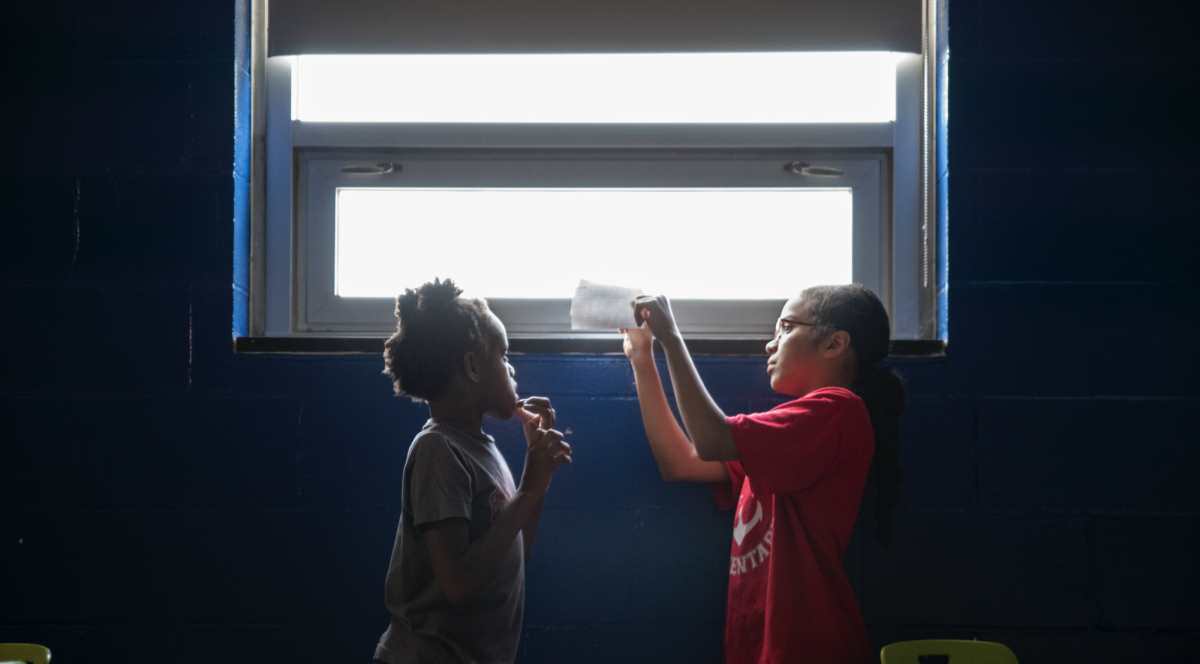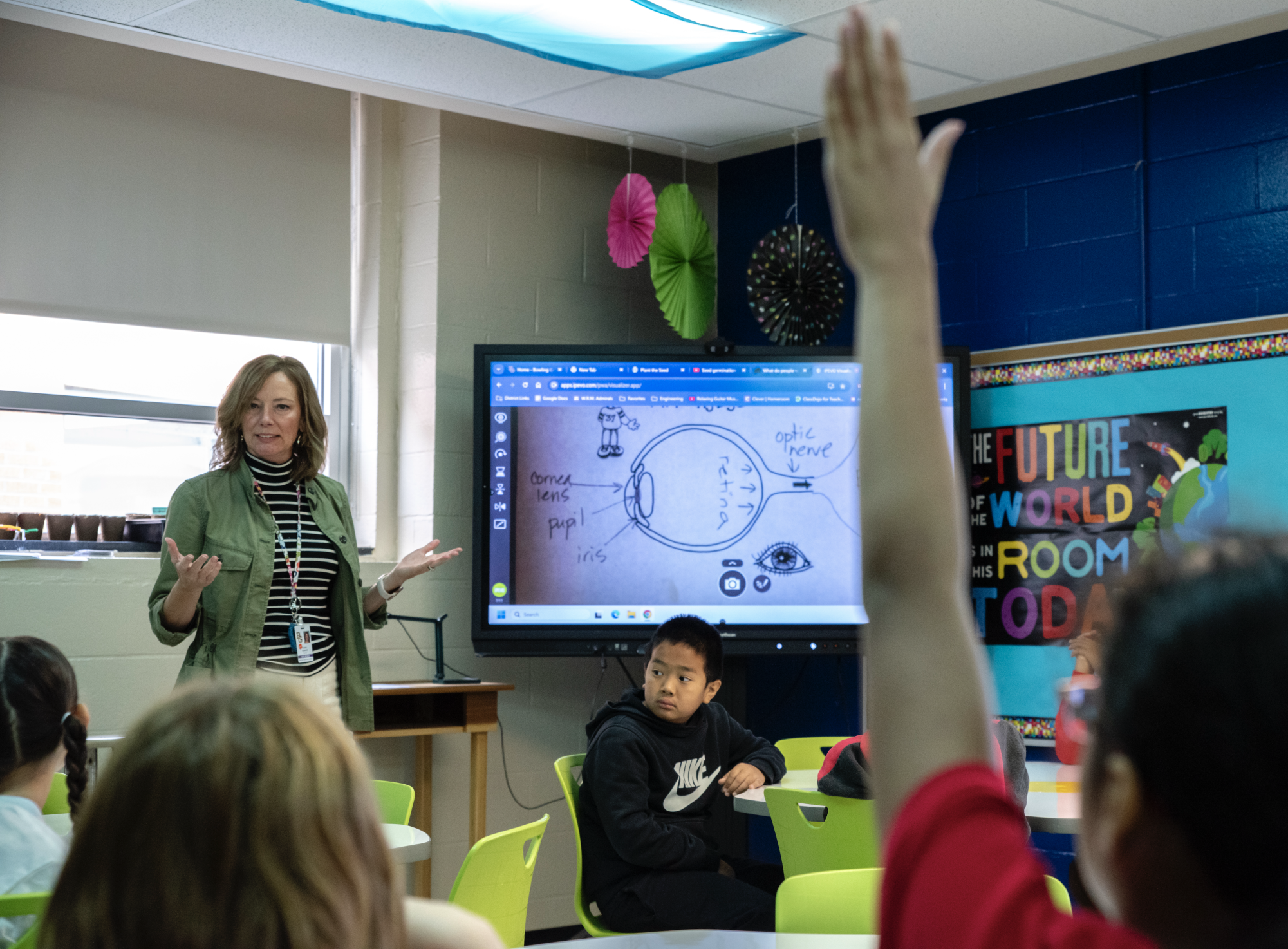While most of the focus of this election will be on the presidential, mayoral and congressional elections next month, an amendment that would pave the way for lawmakers to allocate public education funding to private and religious schools, has also gained attention.
Amendment 2, originally proposed in the Kentucky House of Representatives as House Bill 2, states, “The General Assembly may provide financial support for the education of students outside of the system of common schools.” It was introduced on Jan. 26 by State Rep. Suzanne Miles, R-Owensboro.
Currently, the state constitution does not allow taxpayer dollars to be allocated in any way for private schools. The amendment seeks to change this.
For an amendment to be added to the state’s constitution, it must pass both houses of the General Assembly by a 60% vote. Following passage, it is placed on the ballot, upon which it must receive a majority of votes from Kentuckians. House Bill 2 was passed by both houses of the General Assembly in March.
Amendment 2 would allow the General Assembly to pass legislation that provides public funding to private schools. Similar legislation has previously been considered unconstitutional by state courts.
The Kentucky Supreme Court struck down House Bill 563 in 2022, which sought to award tax credits for donations to private schools. The following year, the Franklin Circuit Court struck down House Bill 9, which allowed public funding for charter schools and would establish the Kentucky Public Charter School Pilot Project. The project was meant to study the impact of a public charter school within Kentucky’s common school system. The Supreme Court affirmed this ruling.
Amendment 2 has caused much debate and division across the commonwealth’s education community. Supporters of the amendment argue that it will allow low-income individuals more opportunities to send their children to private schools, greatly improving school choice.
Gary Houchens, director of WKU’s Educational Leadership Doctoral Program, said Amendment 2 is about giving parents the opportunity to choose the school environment that best suits their child’s needs.
“Kids are just too different and unique in their needs,” Houchens said. “The needs, aspirations and values of families are too great for any given school to be the perfect fit for every kid.”
Houchens was appointed by Governor Matt Bevin to serve on the State Board of Education from 2016 to 2019. He said he is a firm believer that the amendment will improve Kentucky’s public education system.
“In several states like Ohio and Indiana that have school choice options, their students outperform Kentucky’s students,” Houchens said.
Houchens said he urges citizens to look to Florida and other neighboring states with school choice, as he believes their public education flourishes with student choice policies implemented.
Houchens recognizes the division the amendment is causing in the commonwealth’s education community.

Supporters of the amendment argue that it will allow low-income individuals more opportunities to send their children to private schools, greatly improving school choice.
Gary Houchens, director of WKU’s Educational Leadership Doctoral Program, said Amendment 2 is about giving parents the opportunity to choose the school environment that best suits their child’s needs.
“Kids are just too different and unique in their needs,” Houchens said. “The needs, aspirations and values of families are too great for any given school to be the perfect fit for every kid.”
Houchens was appointed by Governor Matt Bevin to serve on the State Board of Education from 2016 to 2019. He said he is a firm believer that the amendment will improve Kentucky’s public education system.
“In several states like Ohio and Indiana that have school choice options, their students outperform Kentucky’s students,” Houchens said.
Houchens said he urges citizens to look to Florida and other neighboring states with school choice, as he believes their public education flourishes with student choice policies implemented.
Houchens recognizes the division the amendment is causing in the commonwealth’s education community.
“There is a lot of pushback,” Houchens said. “These kinds of policies are fought by the education establishment in every state where they are adopted.”
Opponents fear the bill’s impact on public education. They argue one of the issues facing public schools is inflation.
Leslie McCoy, director of communications for Bowling Green Independent Schools, believes one of the largest issues is recruitment and retention of teachers.
“Over 80% of our budget is with people and positions. So when we can’t keep up with inflation, with our funding, we can’t increase teacher salaries,” McCoy said. “We already know that fewer people are going into education as a major. So it’s really important that we keep up with inflation and offer educators competitive salaries.”
McCoy said she feels this issue also causes a greater burden on local taxpayers, which causes concern in her eyes, especially for rural areas.
According to the Kentucky Center for Economic Policy, a nonprofit that works to analyze and inform the commonwealth on key issues and policies, 80% of Kentucky private schools are within 8% of the state’s zip codes. McCoy feels this will cause the vast majority of Kentucky counties to not have private school options at all.
“I believe that’s concerning because when we talk about funding, we need to fund the public,” McCoy said.
The Kentucky Center for Economic Policy also found if a voucher program like Florida’s was put in place, Bowling Green Independent Schools would face a 15% budget reduction as a result. This equals a loss of around $9.5 million.
McCoy said public school leaders and educators are concerned about the lack of accountability and transparency with private schools since they do not have to follow state guidelines.
“Kentucky public schools will always serve the vast majority of students and those with the greatest needs,” McCoy said in a Facebook post. “Private schools have policies that can deny admission or ask students to withdraw if they are not making adequate progress.”
Warren County voters will find Amendment 2 on the back of their ballot on Election Day, posed as the following question:
“To give parents choices in educational opportunities for their children, are you in favor of enabling the General Assembly to provide financial support for the education costs of students in kindergarten through 12th grade who are outside the system of common (public) schools by amending the Constitution?”
News Reporter Bradlee Reed-Whalen can be reached at bradlee.reedwhalen539@topper.wku.edu.



